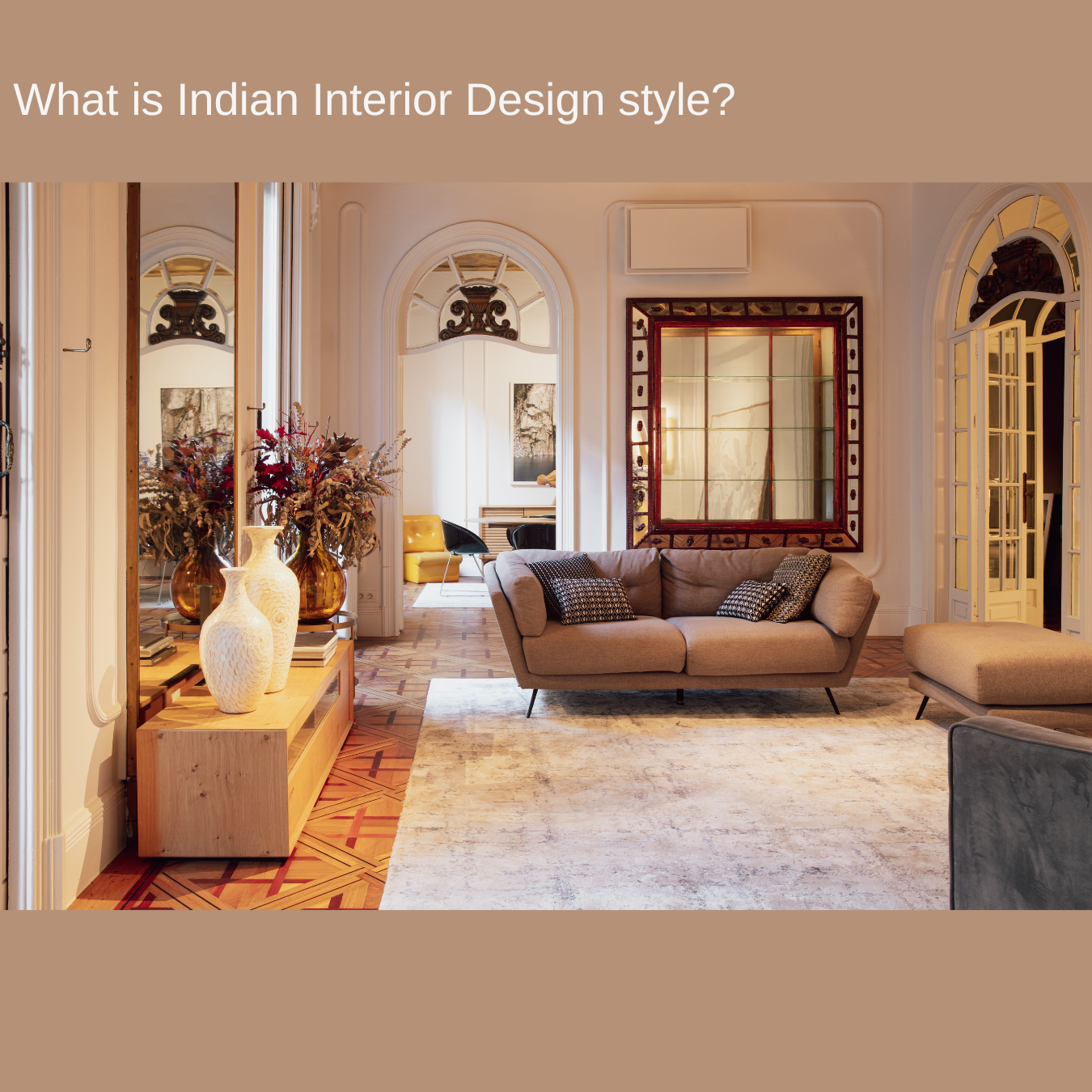Indian Interior Design Style is a rich and vibrant aesthetic that draws from India’s deep cultural, historical, and artistic heritage. It blends traditional craftsmanship with a bold use of colors, intricate patterns, and handcrafted elements to create warm, layered, and soulful interiors. Here’s a breakdown of its key characteristics:
Key Features of Indian Interior Design Style
1. Vibrant Colors
- Strong, saturated hues like deep red, mustard yellow, indigo, saffron, emerald, and turquoise.
- Often combined in contrasting or complementary ways.
- Walls, fabrics, and furniture may all carry intense color.
2. Ornate Woodwork
- Furniture often made from solid wood like teak, rosewood, or mango wood.
- Intricately carved headboards, jharokhas (window frames), doors, and screens.
- Finishes range from polished to antique/distressed.
3. Textiles and Fabrics
- Rich materials like silk, cotton, khadi, and brocade.
- Decor includes embroidered cushions, block-printed bed linens, and colorful dhurries or rugs.
- Layering textiles is common – for warmth, comfort, and visual interest.
4. Handcrafted Elements
- India has a deep tradition of handicrafts, from brass lamps and pottery to mirror work, cane furniture, and handwoven baskets.
- Artisanal touches often anchor Indian-style rooms.
5. Patterns and Motifs
- Paisleys, mandalas, floral prints, elephants, peacocks, and Mughal-inspired patterns.
- Found on wallpapers, fabrics, tiles, or in carved details.
6. Religious and Spiritual Elements
- Small puja (prayer) rooms or nooks with idols, incense, and bells.
- Art and sculpture often depict deities like Ganesha, Lakshmi, or Buddha.
7. Flooring and Surfaces
- Traditional materials like terracotta tiles, Kota stone, marble, and granite.
- Decorative inlays or borders are common, especially in heritage homes.
8. Lighting
- Warm, ambient lighting from lanterns, diyas, pendant lights, and jali-covered lamps.
- Natural light is often maximized with sheer curtains or large windows.
Popular Sub-Styles within Indian Design
- Rajasthani: Opulent, colorful, heavily carved furniture and arches.
- South Indian: Temple-style wood furniture, brass utensils, classical sculptures.
- Colonial Indian: British influence with Indian motifs, cane furniture, and dark woods.
- Modern Indian: Contemporary furniture with subtle traditional accents and artisan details.
In Modern Homes
Indian design can be adapted to modern spaces by:
- Using neutral walls with colorful accents.
- Incorporating minimalistic furniture but with traditional fabrics.
- Mixing modern lighting with vintage pieces.


